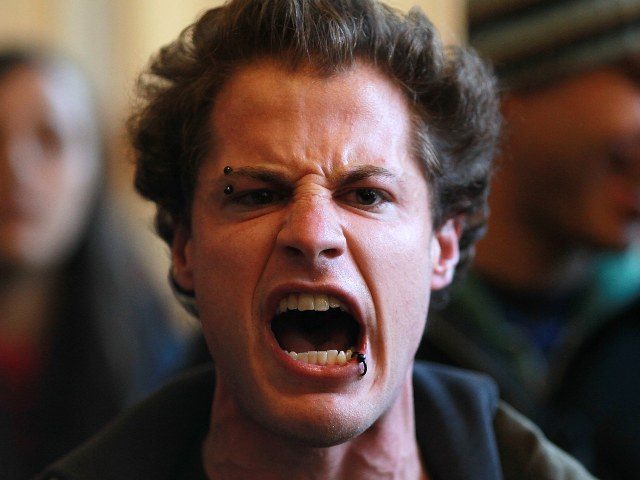Peter Boghossian of Portland State University penned a column for the Wall Street Journal this week in which he made the case that the social justice craze is making its way from the campus out into the real world.
Writing for the Wall Street Journal, Portland State University Professor Peter Boghossian made the case this week that social justice politics are seeping out of academia and into the real world.
Breitbart News reported in July that Portland State University had sanctioned Boghossian for participation in an effort to dupe leftist academic journals. Boghossian and a small team submitted radical hoax papers to various “social justice” journals. Some of the papers, like one that focused on “dog rape culture,” were accepted for publication.
Boghossian made the case this week that “social justice” academics are pushing their ideas into the mainstream through a process called “idea laundering.”
The reason you’ve heard them is that politically engaged academicians have been developing concepts like these for more than 30 years, and all that time they’ve been percolating. Only recently have they begun to emerge in mainstream culture. These academicians accomplish this by passing off their ideas as knowledge; that is, as if these terms describe facts about the world and social reality. And while some of these ideas may contain bits of truth, they aren’t scientific. By and large, they’re the musings of ideologues.
“Idea laundering,” a concept coined by former Evergreen State College Professor Bret Weinstein, is the process by which far-left academics propel their ideas into the zeitgeist. The process involves the conversion of an academic’s moral beliefs into a form of “knowledge” based on their subjective sense of morality.
It’s analogous to money laundering. Here’s how it works: First, various academics have strong moral impulses about something. For example, they perceive negative attitudes about obesity in society, and they want to stop people from making the obese feel bad about their condition. In other words, they convince themselves that the clinical concept of obesity (a medical term) is merely a story we tell ourselves about fat (a descriptive term); it’s not true or false—in this particular case, it’s a story that exists within a social power dynamic that unjustly ascribes authority to medical knowledge.
Second, academics who share these sentiments start a peer-reviewed periodical such as Fat Studies—an actual academic journal. They organize Fat Studies like every other academic journal, with a board of directors, a codified submission process, special editions with guest editors, a pool of credentialed “experts” to vet submissions, and so on. The journal’s founders, allies and collaborators then publish articles in Fat Studies and “grow” their journal. Soon, other academics with similar beliefs submit papers, which are accepted or rejected. Ideas and moral impulses go in, knowledge comes out. Voilà!

COMMENTS
Please let us know if you're having issues with commenting.